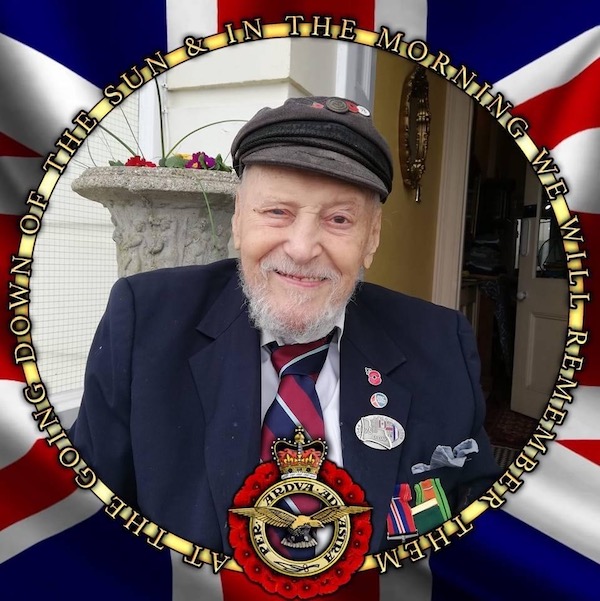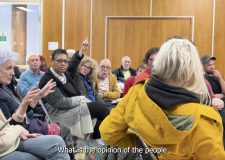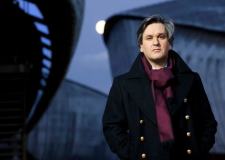GEORGE MONTAGUE

It was with great sadness that the city of Brighton and Hove learnt of the passing of gay rights campaigner George Montague, the self-titled “oldest gay in the village”, at the age of 98.
On Friday the 18th of March his followers on social media received this moving message from George posted by his husband Somchai Phukkhlai.
“Dear friends and supporters, George is wishing to say goodbye, He thanks everyone who have been supporting his campaigns that he might had helped a little for us to live in a better world. Everyone please continue your good works for good causes. I shall rest now, Goodbye,”George 98”.”
George Montague realised he was gay when he was in his 20s, and was convicted of gross indecency in 1974 by what he described as homophobic police and said that he had been placed on a “queer list” by local police.
George, a famous figure of Brighton Pride where he would join the parade on his rainbow bedecked mobility scooter, relentlessly fought for that conviction for gross indecency to be pardoned. That fight took 43 years and even when he was finally granted a pardon he continued to fight until he recieved an apology.
In his memoir, The Oldest Gay in the Village, George recalled: “Under Gross Indecency law, we were arrested and charged enthusiastically by homophobic police, assisted by provocateurs and informers.”
It was back in 2016 that the government pardoned thousands of gay and bisexual men who were convicted under historic anti-gay laws, but Montague campaigned for a full apology stating that a pardon “accepts that you were guilty”.
Like many gay men living in the UK when homosexuality was criminalised, Montague had married a woman, and had three children.
They were together for more than 20 years, and he previously said: “I was always convinced my wife knew I was gay when she married me but it wasn’t discussed. She could have divorced me, she could have taken me to the cleaners but she didn’t.”
Eventually they did divorce, and Montague met his partner Somchai Phukkhlai in 1997. They entered into a civil partnership in 2006 and married in 2015 at Brighton Town Hall.
Thousands signed a petition in which Montague urged the government to give him “an apology before I die”, and he delivered that petition to Downing Street with his husband.
Finally, in 2017, he received an “abject apology” in a letter from the Home Office which read: “Understand that we offer this full apology. Their treatment was entirely unfair. What happened to these men is a matter of the greatest regret and it should be so to all of us.”
The result achieved national media attention and on BBC Radio 4’s World at One he declared that the abject apology had made his day, and that he was over the moon.
Montague previously told the local media that he was thrilled to have lived to see society become more accepting of LGBT+ folk. “I spent my early years ashamed of being gay and terrified of being found out and, as the climate has changed, now I want to shout it from the rooftops.”
George spent 43 years shouting from the rooftops and attracting the attention of the international media for his campaigning. As a result thousands of men whose lives had been adversely affected by convictions from an archaic and homophobic law had those convictions pardoned but for many it was too late. Prison sentences, chemical castration, public shaming and a stigma that in most cases resulted in the loss of jobs and for many suicide.
George will be remembered for his hard and tireless work but also for being a vibrant and vocal part of Britain’s queer community. We send our thoughts to his husband Somchai and to his family.




















